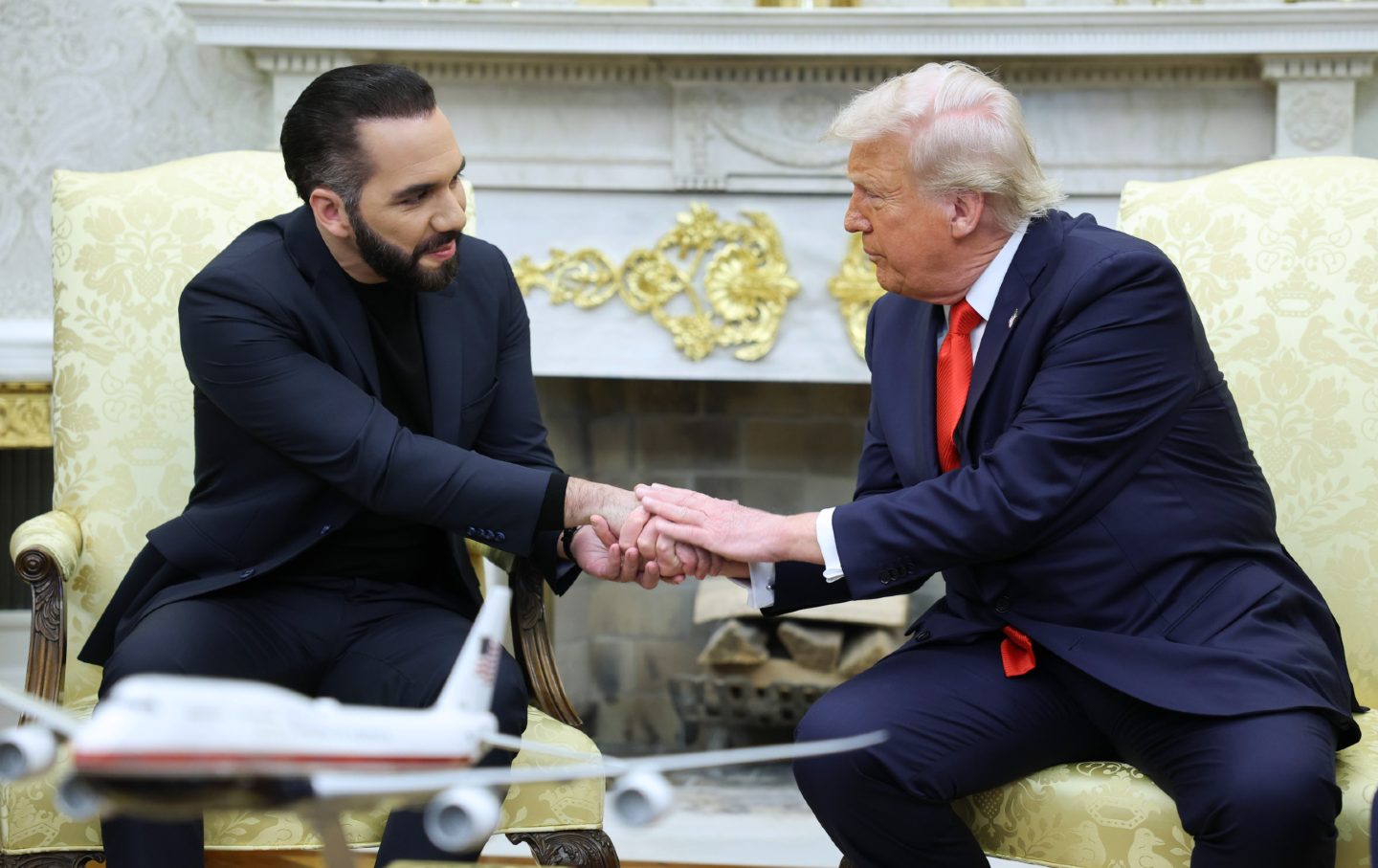The Trump administration is learning dangerous lessons from El Salvador’s president, but there’s also much that the US left can learn from Salvadoran antifascists.
US President Donald Trump meets with President Nayib Bukele of El Salvador in the Oval Office of the White House on April 14, 2025, in Washington, DC.
(Win McNamee / Getty Images)
The most revealing part of the historic meeting between President Donald Trump and El Salvador’s President Nayib Bukele came in the form of a joke:
Bukele: Sometimes they say that we imprisoned thousands, I like to say that we actually liberated millions.…
President Trump: Who gave him that line? Do you think I can use that?
[Laughter]
Bukele: To liberate 350 million you have to imprison some.
Beneath Trump and Bukele’s levity, there’s a deadly seriousness. As a San Francisco–born Salvadoran journalist, author, and student of technofascism, I’ve written about electronic surveillance, war, MS-13, immigration, national security, and the conflation of these issues, and I see great danger ahead.
Trump and Bukele’s joke and the goal for the White House meeting—“working closely together to eradicate terrorist organizations, and build a future of Prosperity”—contain familiar codes harkening back to the repressive statecraft of the Cold War.
Current Issue

Bukele’s quip reveals not what El Salvador has learned from the United States but what the United States has learned and will continue to learn from El Salvador. Looming above the meeting is possibility that Trump will expand El Salvador’s traditional role as a laboratory for US and global repression. Even the most thoughtful critics of US empire sometimes fall into the age-old error of framing statements like Bukele’s carceral deal-making tweets (i.e., “We have offered the United States of America the opportunity to outsource part of its prison system”) as being primarily about gangs and immigrants when it’s actually about a far larger group: all of us.
At the same time, the activist in me who survived persecution by and helped defeat US-backed death squads also senses an opportunity. Just as El Salvador’s fascist history provides a model for neofascist domination in Argentina, Ecuador, the United States, and other countries, so does El Salvador’s history in fighting—and defeating—fascists provide us with valuable lessons. What can Salvadoran leftists teach us about the tech-media-enabled fascist creep and the resistance we need to defeat the far right in El Salvador and the United States?
Trump’s Truth Social post stated, “President Bukele has graciously accepted into his Nation’s custody some of the most violent alien enemies of the World and, in particular, the United States.” The implications of these deceptive statements have immediate consequences for immigrants like Kilmar Abrego Garcia, a legal resident mistakenly deported to El Salvador and currently imprisoned in Bukele’s infamous Terrorism Confinement Centre (CECOT), one of the many prisons in a country where almost 2 percent of the population is incarcerated. (Bukele said during his meeting with Turmp that he had no intention of returning Abrego Garcia to the United States.)
Trump’s statements provide a textbook example of the deadly amnesia that fascism demands for its survival, which I described in my book Unforgetting. Until recently, Bukele, the self-described “world’s coolest dictator,” was a global pariah. He was condemned by governments around the world, including by the Biden and Trump State Departments for violations detailed in the 2022 State Department report on El Salvador’s human rights record, which listed such abuses as:
unlawful or arbitrary killings, forced disappearances; torture and cruel, inhuman, or degrading treatment or punishment by security forces; harsh and life-threatening prison conditions; arbitrary arrest and detention; serious problems with the independence of the judiciary; arbitrary or unlawful interference with privacy; serious restrictions on free expression and media, including censorship and threats to enforce criminal laws to limit expression; serious government corruption; lack of investigation and accountability for gender-based violence; significant barriers to accessing sexual and reproductive health services; and crimes involving violence against lesbian, gay, bisexual, transgender, queer, and intersex individuals.
Understanding how Bukele’s human rights violations are being erased in order to transform him from persona non grata criticized by Trump to a hemispheric hero hailed by Trump and neofascists the world over holds important lessons in what Salvadoran and Latin American leftists call memoria historica, or the deploying of historical memory in the present to define the future.
For decades, El Salvador has served as a laboratory for students of war, state violence, and other repression, including those in the Pentagon, urban police forces, and the prison-industrial complexes throughout the United States. The mediafied mass incarceration of the CECOT and other policies were concocted on the intellectual foundation laid by national security operatives like the late Max Manwaring, a former US Army colonel and professor of military strategy at the US Army War College. During the Salvadoran civil war of the 1980s and early ’90s that killed almost 80,000 people, the Pentagon sent Manwaring to study insurgent and counterinsurgent warfare strategies, which he documented in books like his A Strategic View of Insurgencies: Insights from El Salvador.
When the war ended in 1992, El Salvador was in ruins. That same year, I was living in Los Angeles when former Bush I attorney general Bill Barr saw an opportunity in the moral panic brought on by the LA riots. Barr initiated what was at the time the largest reallocation of FBI resources in history, moving 300 agents from counterintelligence against foreign enemies to focus on a new domestic threat: gangs, including MS-13 and other Salvadoran gangs born in the Pico Union neighborhood I lived and worked in. Barr also began the accelerated deportation of actual and alleged gang members from Los Angeles to El Salvador, a country with no precedent for US-style gang structures. The deportees brought US gang structures to El Salvador. Combined with the violence of the Salvadoran military and police, the homicide rates soon surpassed those seen during the war of the 1980s.
Barr’s efforts drew the attention of Pentagon operatives like Manwaring, who started writing articles and books with titles like Gangs, “Coups D’Streets,” and the New War in Central America and Street Gangs: The New Urban Insurgency. Manwaring and other strategists provided the counterinsurgency theories that would inform and legitimize the militarization of US police forces, beginning with Bill Clinton and continued by George W. Bush and Barack Obama, who opened Pentagon warehouses to local police forces, providing them with new, puffy robocop outfits. Trump, Bukele, and Pentagon operatives and police chiefs like the infamous Darryl Gates and Bill Bratton—followed suit, retooling the Salvadoran military option for a new theater of conflict: the streets of the United States. Media personalities like Lisa Ling also followed, creating the image of MS-13 as “the most violent gang in the world.” (There is no data proving who is “most violent.”)
In 2019, Trump started to more aggressively deploy the word “terrorist” to describe MS-13. After being elected president that same year, Bukele did, too. At the same time, members of San Francisco’s police gang task force told me MS-13 had killed two people in the city. Similarly, in Long Island, MS-13 had killed an average of 5.5 people per year for the past 10 years. That same year, three mass murdering white men in El Paso, Texas; Dayton, Ohio; and Odessa, Texas killed more people than all the estimated 10,000 MS-13 gang members in the United States—a number that has remained static for years, according to the pre-Trump FBI—did in the entire year.
We Salvadorans understand the use of extreme distortion to justify repression with appeals to “protect and serve” the populace from the dark, faceless internal enemies of the state, including those not aware that they are—or soon will be—the targets of state repression. We understand what Trump’s mentioning of the MS-13 and Tren de Aragua as “absolute killer gangs” in his “Liberation Day” speech launching his tariff war means: the necessary fusion of economic war and the new war on the inner city and other populations affected by failed economic policies. We also understand what is to be done.
Popular
“swipe left below to view more authors”Swipe →
By organizing our communities and mobilizing to defend the rights of Kilmar Abrego; Rumeysa Ozturk, the Tufts PhD student abducted by plainclothes security forces in unmarked vehicles; Palestinian US resident Mahmoud Khalil; and others being denied their basic rights, we aren’t just defending immigrants. We’re defending ourselves from the coming expansion of the “terrorist” label and the even greater repression that is sure to accompany it.
More than anything, Salvadorans and their history of struggle help me see the outlines of the broad antifascist front that has always been the antidote to the reactionary right. Those of us preparing for the possibility of a better world will have to organize general strikes and other actions in response to the Salvadorization of the United States.
But overcoming fascism is also spiritual. I’ve interviewed psychologists who’ve treated Salvadoran children whose brains shrink from being caged and separated by Obama, Biden, and Trump. The psychologists have told me about one of the primary ways to treat them: Create the conditions for them to reconstitute the fragments of themselves into stories they can share to stir the memory and imagination of that part of themselves that’s resilient and powerful.
Similarly, social movements will also need to exercise our memoria historica as we reconstitute our political imaginations. Given developments in the US—coup attempts, radical divisions between rich and poor, the dismantling of the welfare state, increased militarism and militarized policing—it should be obvious that liberal progressivism is inadequate to defeating fascism. What’s required is what we in El Salvador called a frente amplio, an unprecedented hemispheric and global front to defeat the reactionary global forces embodied by the digitally enabled alliance between Trump, Bukele, Elon Musk, Argentina’s Javier Milei, and others.
If we must learn anything from Salvadorans, it is the strategic and psychic value of the sublime and the beautiful in sustaining individual and collective struggle amid decades of war, mass graves, mass murder, gang violence, and record-breaking homicide rates. In the face of violence that scholars have called “apocalyptic,” those of us fighting Salvadoran fascism became poet warriors, reading and writing poetry in guerrilla camps and clandestine houses. In the process, we learned that the determinant factor in war and in politics is the spirit that sustains struggle and keeps you steady in the face of danger. And we’re more than ready to aid the fight against US fascism by sharing what we learned.
More from The Nation
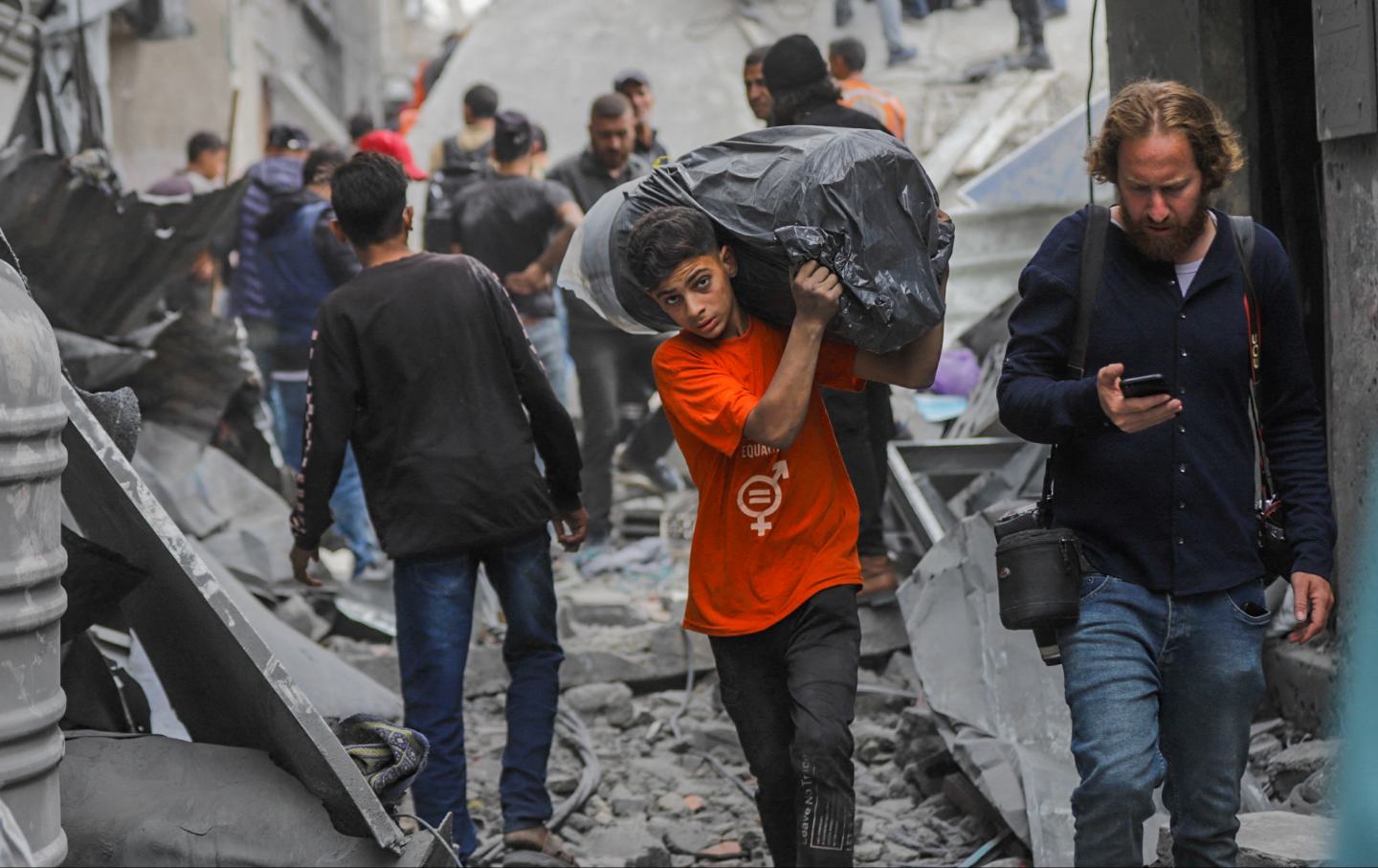
Israel has returned to full-scale slaughter in Gaza. Western outlets have returned to the same disastrous coverage of the past 18 months.
Assal Rad

Nuclear plants are prime targets in wartime Ukraine. Renewables are safer, cheaper—and already on the rise.
Paul Hockenos
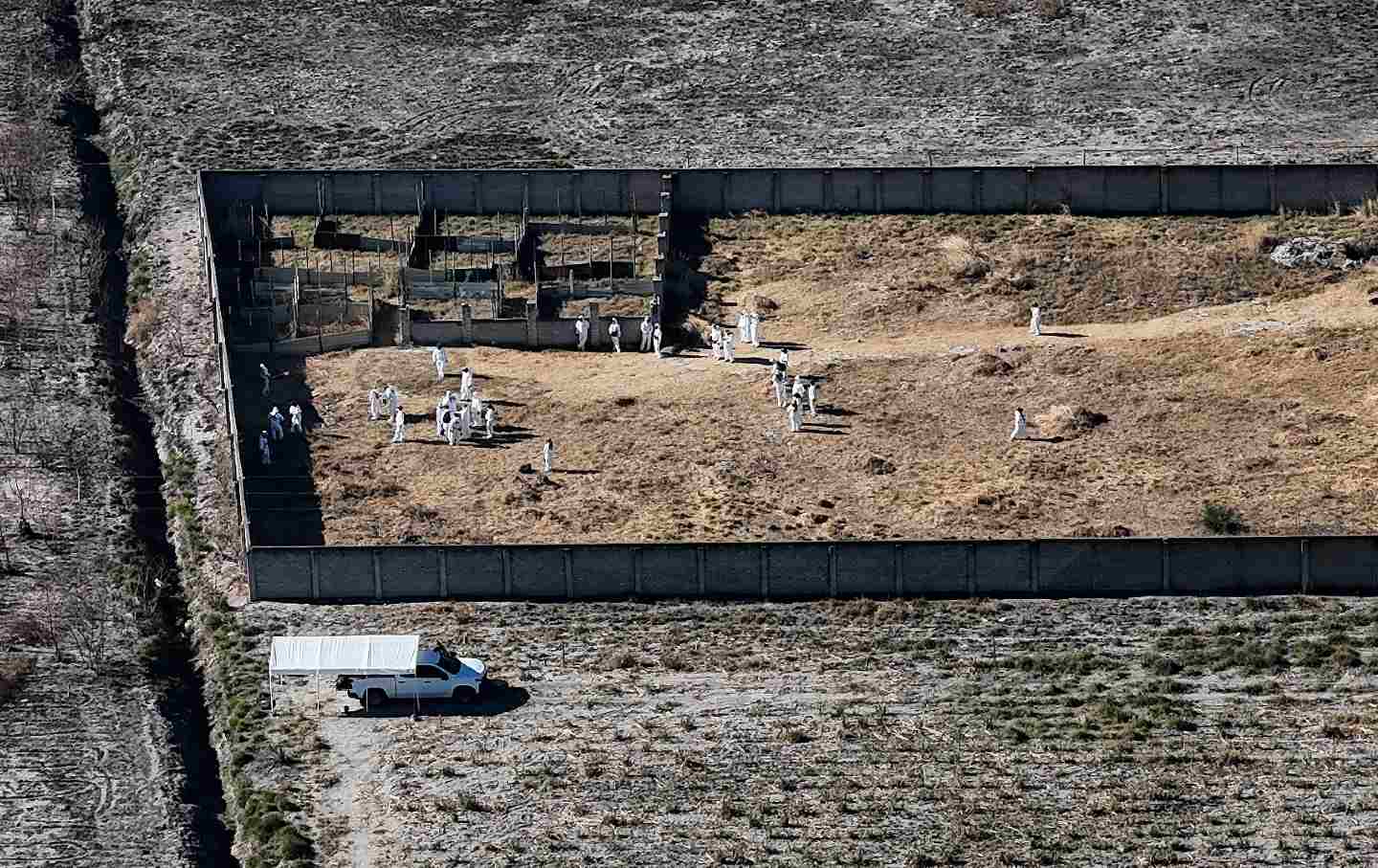
At a Jalisco ranch, investigators found bone fragments and three suspected crematoria. Families toured the camp, hoping to find clues about their missing family members.
Ivonne Ortiz
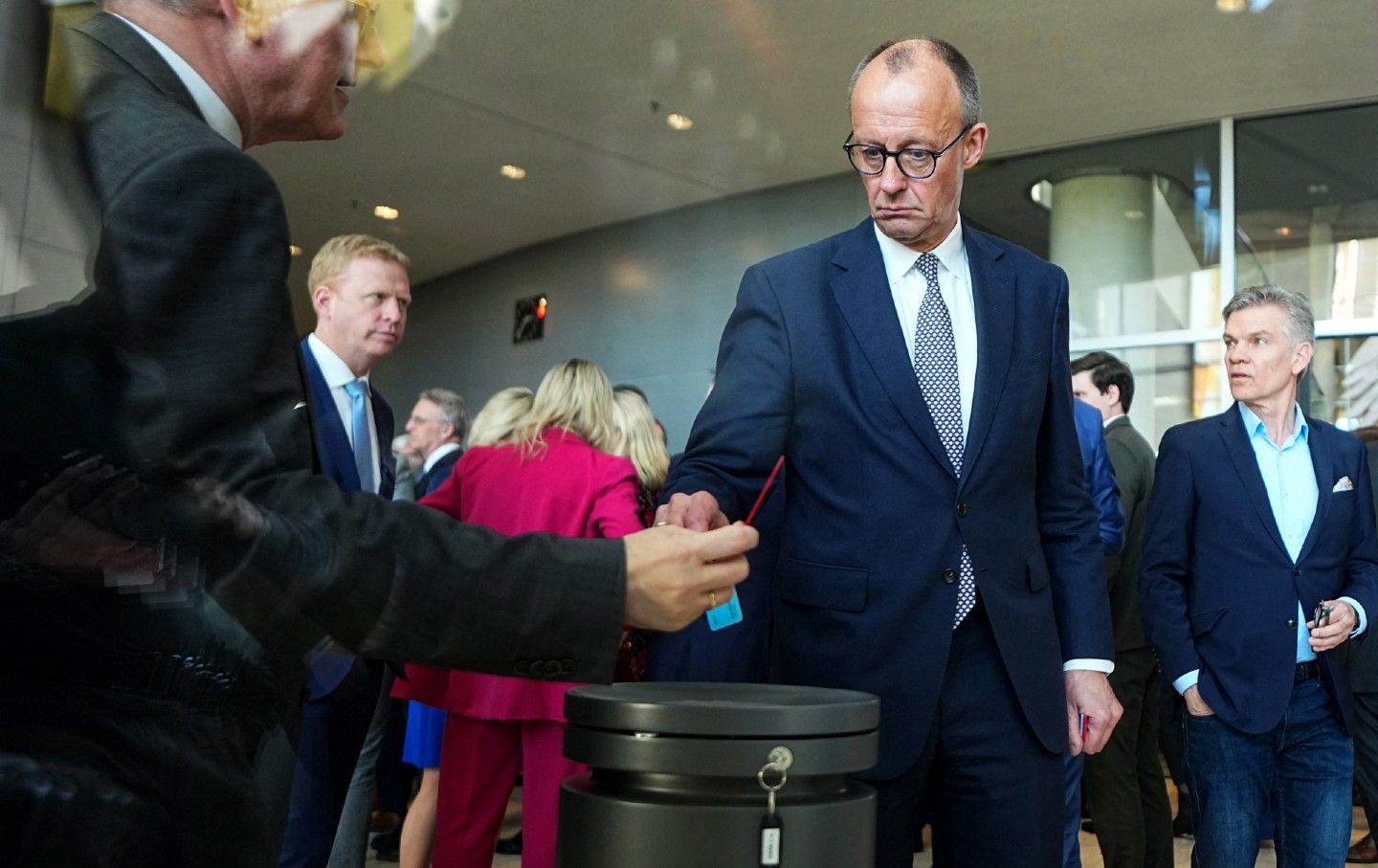
The European Union’s rush to increase military spending is as much about appeasing Washington as achieving actual “strategic autonomy.”
Harrison Stetler
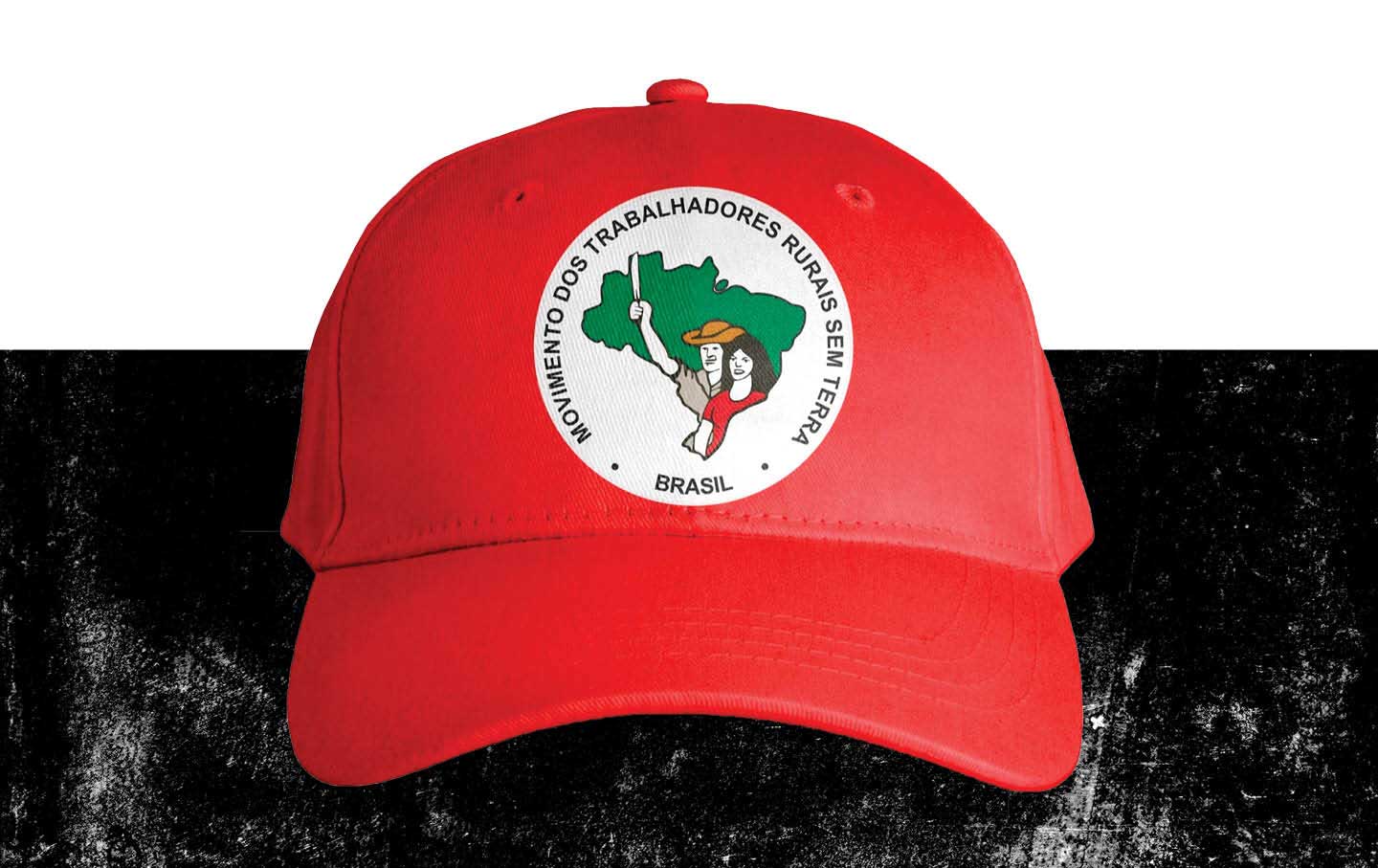
After mobilizing to defend democracy and meet people’s immediate needs, the radical Marxist organization emerged from the Bolsonaro regime stronger than ever.
Feature
/
Vincent Bevins
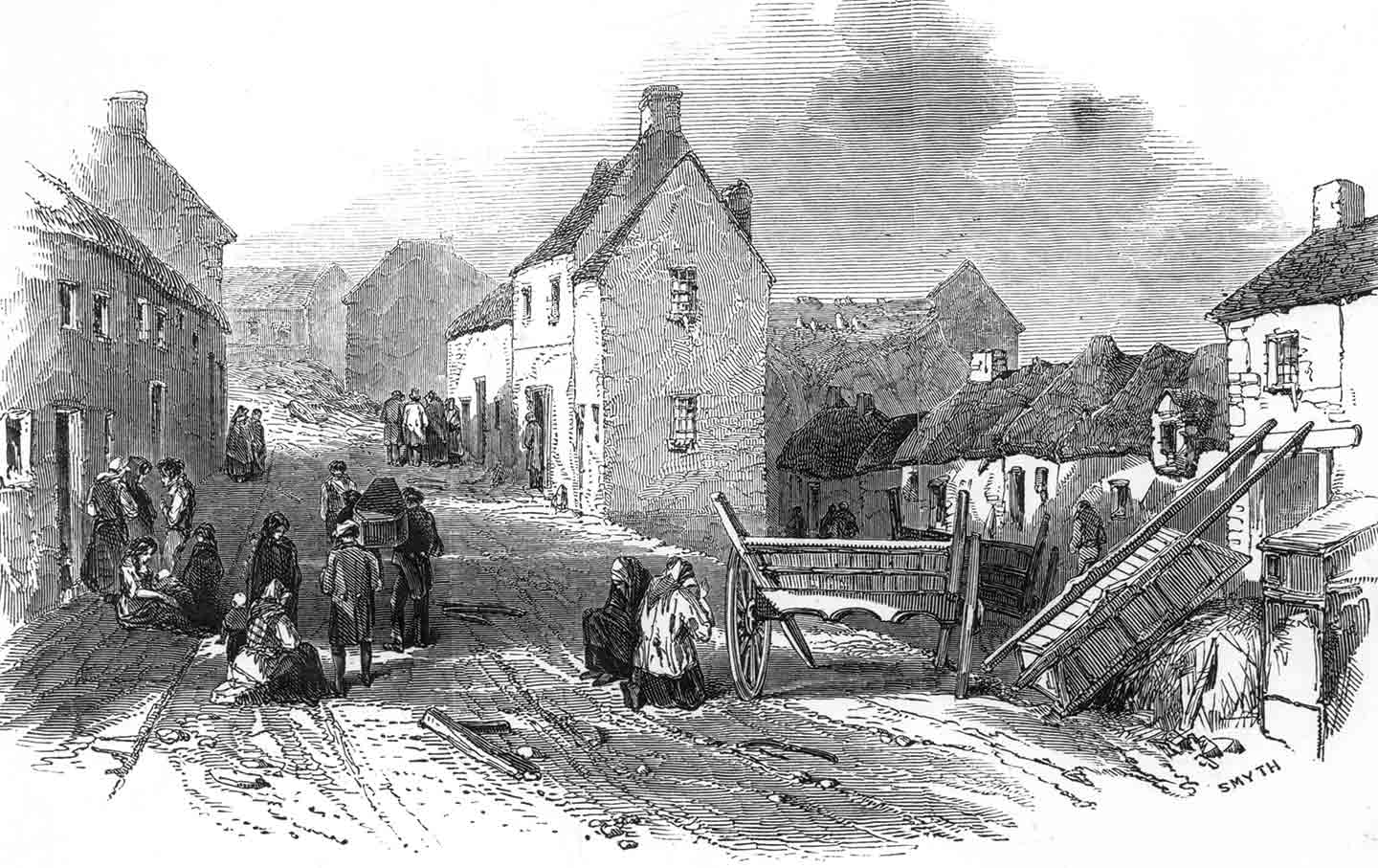
A new book offers a comprehensive and heartbreaking account of the most terrible catastrophe to befall Ireland in the modern era.
Books & the Arts
/
John Banville
